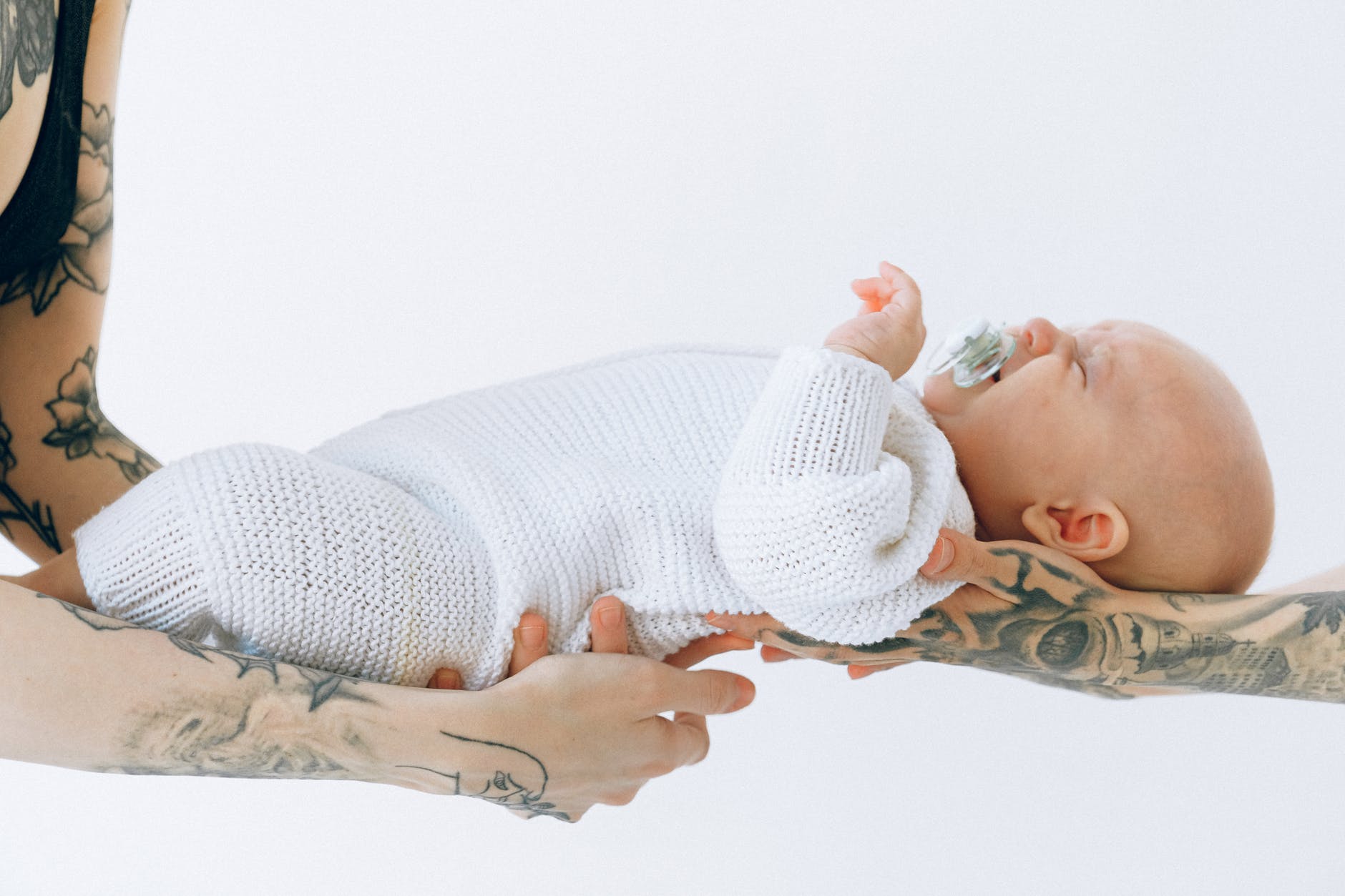About 70% of newborns in the age between 1-3 weeks and 3 months face colic. It appears as cramps in the intestines, which are accompanied by increased gas production and peristalsis. Usually, it is caused because the baby’s digestive system cannot cope with the digestion of breast milk or formula. As a result, a child suffers from colic, which makes it naughty and cries. Colic can bother an infant for several months until its enzyme system is sufficiently mature. Read more in this article to know which one to pick for your baby.
Causes of colic

Img source: pexels.com
The inability to process certain substances that enter the kid’s organism along with food causes colic. The main reasons for colic are:
- immature digestive and central nervous systems
- intestinal dysbiosis
- allergy to the formula or its incorrect preparation
- air entering the stomach during feeding
- adding new foods to the child’s diet
- overfeeding
- lactase deficiency
A newborn’s digestive system develops gradually. During the first months of life, it is adapted to assimilate breast milk or formula. At the same time, the child’s organism may not yet produce some of the enzymes necessary for the digestion of certain microelements included in its diet. As a result, they become the cause of excess gas formation.
Besides, the digestive tract can not be ready for the digestion process. In such cases, food is not absorbed immediately and is retained for a long time in the large intestine, which provokes its excessive stretching and gas formation, so a baby has intestinal cramps and colic.
A common reason for colic is also the entering the stomach of large amounts of air during feeding. In order for the swallowed air to leave the stomach after feeding, it is advised to hold a kid upright for 10-15 minutes until burping appears. Also, colic can appear because of the use of antibiotics. Some experts assume that stress or other psycho-emotional reasons lead to it.
The common signs of colic
During the first months of life, parents only learn to understand what a baby may want or what it worries about. The symptoms of colic are nonspecific, so it can be difficult to determine what exactly they are causing the baby’s anxiety. Common clues are:
- crying
- sleep issues
- whole body tension and bloated abdomen
- frequent regurgitation
- constipation
Colic is accompanied by the formation of gas and intermittent intestinal cramps thus causing severe discomfort and pain. So a baby can cry a lot, jerk its arms and legs, and squeeze them to the stomach. Since the spasms are cyclical, a child can calm down for a while, and then start all over again. Colic symptoms usually last from half an hour to two or three hours. As a rule, they are repeated after each feeding.
However, colic is very painful and uncomfortable for a baby, still, it is not considered a disease. At the same time, parents need to be very attentive to changes in kids’ behavior and well-being. Colic usually does not cause symptoms in children such as skin rash, cough, vomit, diarrhea, high temperature, etc. If your little one has some of these clues, you should immediately call a pediatrician.
Recommendations for colic treatment

Img source: pexels.com
Intestinal colic often does not require special treatment and the symptoms are reduced either by correcting breastfeeding or choosing a suitable milk formula. Anyway, you still need to visit a pediatrician to exclude the pathological causes of abdominal pain. Since babies with persistent colic have a high probability of intolerance to cow milk proteins, in some cases it is recommended to switch to a dairy-free diet.
As air swallowing is among the reasons for colic, it is important to properly latch a baby to the breast and carefully select special teats with an anti-colic valve for bottle-fed babies. They prevent air from entering the stomach. In addition, you need to carefully pick up infant formula.
For bottle-fed babies, the suitable formulas come with a ‘comfort’ label on the package. On organicsbestshop.com you will find specialty HiPP Comfort based on partially split milk protein. In addition, such formula contains a low lactose content, because lactase deficiency also contributes to colic.
Colic is very often the result of dysbiosis – a lack of beneficial bacteria in the organism that helps digestion. Formulas for symptom reduction have to contain important ingredients such as prebiotics and probiotics. Many clinical studies have shown that they help the formation of healthy microflora. What’s more, probiotics and prebiotics protect a baby from food allergies, normalize stool and relieve diarrhea. Bifidobacteria are essential for the proper absorption of nutrients and the formation of the natural microflora of the gastrointestinal tract.
Prevention of colic
- Keep a baby upright after feeding until it spits up
- Use bottles and teats that prevent air swallowing
- Adjust the mother’s diet if a kid is breastfed
- Put a heated blanket or towel on the baby’s tummy
- Stroke and massage a tummy easily
It is also important to learn how to properly latch a newborn to the breast during feeding. It is advisable to hold a kid so that its head is at least slightly higher than the tummy. Specialists suggest stroking the baby’s abdomen in a circular motion. Such simple exercises as alternating bending of the legs towards the abdomen can also be helpful. In some cases, gas tubes are used to reduce colic, but this can be done only after the pediatrician’s recommendation, so as not to accidentally harm a child.
Carrying a baby in your arms is one of the most effective ways to relieve pain. According to some studies, the more time a kid spends in the arms of loved parents during the day, regardless of how it feels, the easier it will be to tolerate colic. The more time a child spends lying down motionless, the higher the risk of developing colic. So after feeding an infant, it should spend some time in an upright position – so the swallowed air will come out without getting into the intestines. You should also check the room temperature because a child should not overheat, as it might be the reason for a decrease in metabolic rate.


















